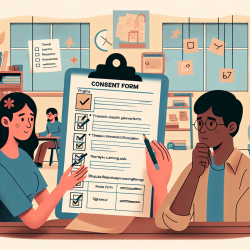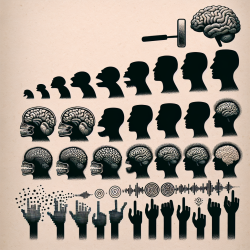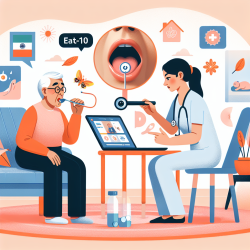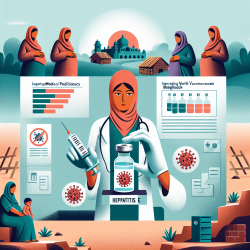In a world where 1.3 billion people live with disabilities, ensuring equitable healthcare access is a pressing challenge. The recent research article "Co-development of a training programme on disability for healthcare workers in Uganda" offers invaluable insights into addressing this issue. This blog will help practitioners improve their skills by implementing the outcomes of this research or encouraging further investigation.
According to the study, healthcare workers often lack the necessary training to effectively care for people with disabilities. This gap is especially pronounced in low and middle-income countries (LMICs) like Uganda. The research used mixed methods, including an umbrella review, interviews, and participatory workshops, to develop a comprehensive training program tailored to the needs of Ugandan healthcare workers.
Key Findings from the Research
- Standardized Training Elements: The training program developed through this research includes standardized elements that can be adapted to various settings.
- Participatory Approach: The development process involved key stakeholders, including people with disabilities and healthcare workers, ensuring that the training is relevant and effective.
- Five Core Themes: The training focuses on responsibilities and rights, communication, informed consent, accommodation, and referral and connection.
Implementing the Training Program
Healthcare practitioners can leverage the insights from this study to enhance their skills and improve outcomes for people with disabilities. Here are some actionable steps:
- Adopt a Modular Approach: Break down the training into manageable modules focusing on different aspects of disability care.
- Engage People with Disabilities: Include individuals with disabilities in the training process to provide firsthand insights and foster mutual understanding.
- Utilize Diverse Teaching Methods: Combine lectures, case studies, simulations, and multimedia tools to create a comprehensive learning experience.
- Focus on Communication Skills: Train healthcare workers to communicate effectively with people with disabilities, building trust and rapport.
- Provide Ongoing Mentorship: Pair healthcare workers with experienced mentors to support the application of new skills in practice.
Encouraging Further Research
While the training program developed in this study is a significant step forward, there is always room for improvement. Practitioners are encouraged to engage in further research to evaluate the long-term impact of the training and explore additional methods to enhance its effectiveness.
In conclusion, the co-development of a training program on disability for healthcare workers in Uganda offers a practical and evidence-based approach to improving healthcare services for people with disabilities. By implementing these findings, practitioners can make a meaningful difference in the lives of those they serve.
To read the original research paper, please follow this link: Co-development of a training programme on disability for healthcare workers in Uganda.










